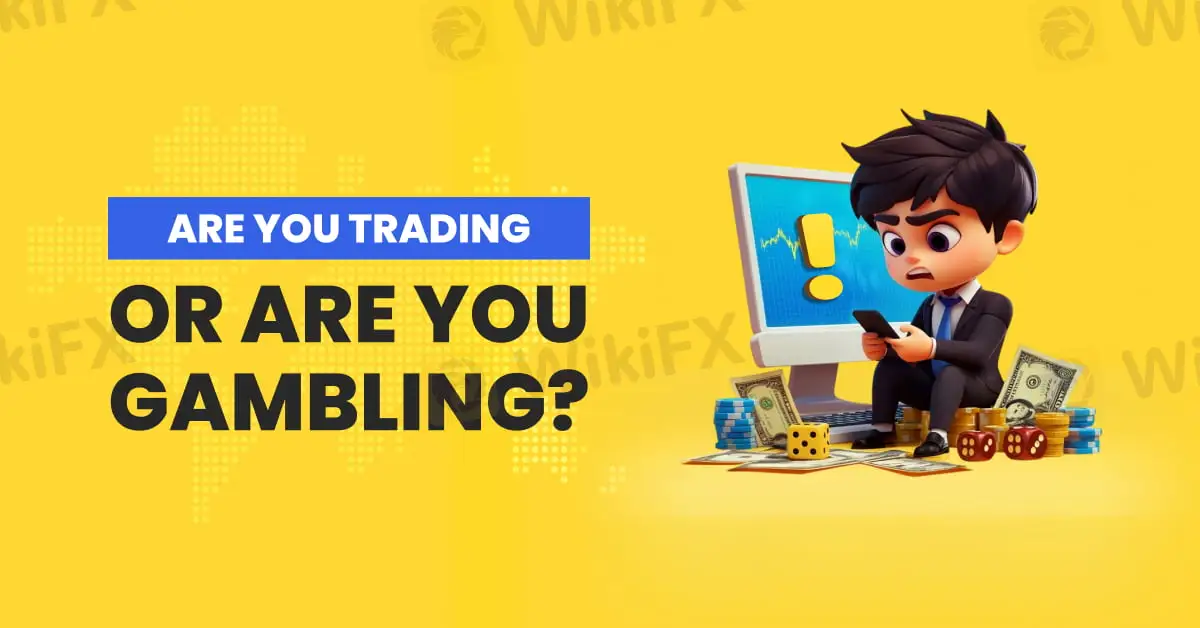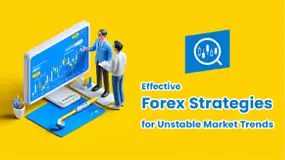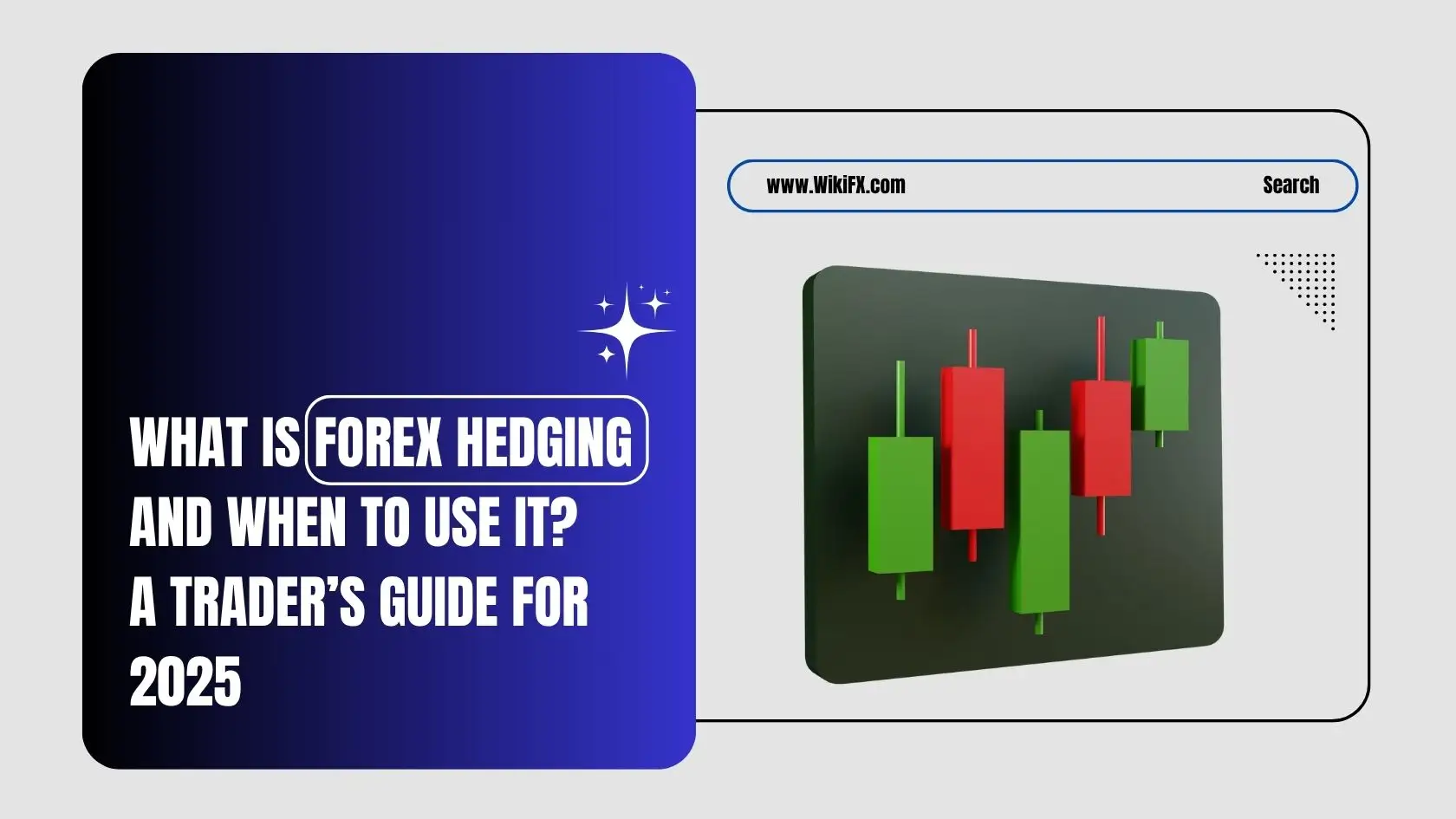简体中文
繁體中文
English
Pусский
日本語
ภาษาไทย
Tiếng Việt
Bahasa Indonesia
Español
हिन्दी
Filippiiniläinen
Français
Deutsch
Português
Türkçe
한국어
العربية
Are You Trading or Are You Gambling?
Abstract:In today’s world of online markets, it’s easy to confuse trading with gambling. And the truth is, many people who think they are trading are actually gambling without realising it.

In today‘s world of online markets, it’s easy to confuse trading with gambling. The two may look similar on the surface, as both involve risk and the chance of winning or losing money. But in reality, they are very different activities. And the truth is, many people who think they are trading are actually gambling without realising it.
Trading, when done properly, is based on a plan. Traders study the market, use a clear strategy, and manage their risk. They make decisions based on research and experience. Gambling, on the other hand, is based on luck. Gamblers take chances without a proven method, hoping things will go their way.
Sadly, many new traders behave more like gamblers. They jump into trades without a tested system. They take big risks, hoping to make quick money. Often, they follow hype on social media or fall for promises made by unregulated brokers. These brokers claim you can get rich fast, but in most cases, the only ones getting rich are the brokers themselves.
If you are trading without a clear, tested strategy or if you dont have a plan to protect your money, then you are not really trading. You are gambling.
A serious trader always knows how much they are risking. They never bet more than they can afford to lose. They follow rules for when to enter a trade, when to exit, and how much to risk. They review their performance and keep learning.
A gambler, however, acts on impulse. They trade out of boredom, fear of missing out, or the need to recover from a loss. They often increase their position size after losing, hoping to win it back. This behaviour can quickly lead to disaster.
Its also important to watch out for so-called investment opportunities that promise fast and easy profits. These are often scams. Real trading takes time, patience, and discipline. There are no shortcuts.

If you answered “no” to any of these, it may be time to step back and reassess. Trading without a system and risk control is no different from rolling the dice at a casino.
The markets offer real opportunities. But to succeed, you must treat trading like a business, not a game. Build a plan. Stick to it. Protect your capital. Because if you trade like a gambler, the outcome is usually the same: losses and regret.

Disclaimer:
The views in this article only represent the author's personal views, and do not constitute investment advice on this platform. This platform does not guarantee the accuracy, completeness and timeliness of the information in the article, and will not be liable for any loss caused by the use of or reliance on the information in the article.
Read more

6 Effective Forex Strategies for Unstable Market Trends
Forex market is unpredictable and affected by global events, central bank policies, geopolitical tensions, and even unexpected news releases .This volatility can be challenging for traders. However, those with a solid plan and strong strategies are less affected by market fluctuations..To avoid losses and stay stable in volatile conditions, it’s crucial to understand these 6 effective strategies. Theyll help you navigate market trends.

Watch Your Elders at Home: They Could be Victims of Investment Scams
Thousands of elderly people are being quietly robbed of their life savings by convincing online investment scams, often right under the noses of their families. Take care of your family members and their savings!

Forex Hedging Strategies Explained: Smart Risk Management for 2025
Learn how to hedge in forex trading with real examples, timing strategies, and risk tips. A 2025 guide to smart hedging for retail and institutional traders.

Do You Really Understand Your Trading Costs?
Trading in the foreign exchange market is often viewed as a game of precision, strategy and speed. But what many traders overlook is one of the most decisive factors affecting performance: cost. Not just the fees you can see, but the less visible costs hidden in the structure of every trade.
WikiFX Broker
Latest News
PrimeXBT Launches MT5 PRO Account for Active Traders
Renault shares plunge 16% after French carmaker lowers guidance, appoints new interim CEO
Darwinex Launches INDX: A Revolutionary Investment Strategy for Traders
Top Forex Trading Scams to Watch Out for in 2025
eToro Expands into Singapore with MAS CMS Licence
Real Risk Factors with Admiral Markets ! Explained
5 things to know before the stock market opens Wednesday
5 Reasons to Know Why INFINOX Is a Standout Broker?
Trump's big beautiful bill' caps student loans. Here's what it means for borrowers
Weekly mortgage demand plummets 10%, as rates and economic concerns rise
Currency Calculator


